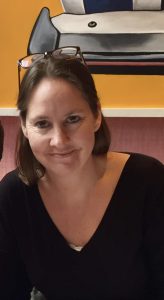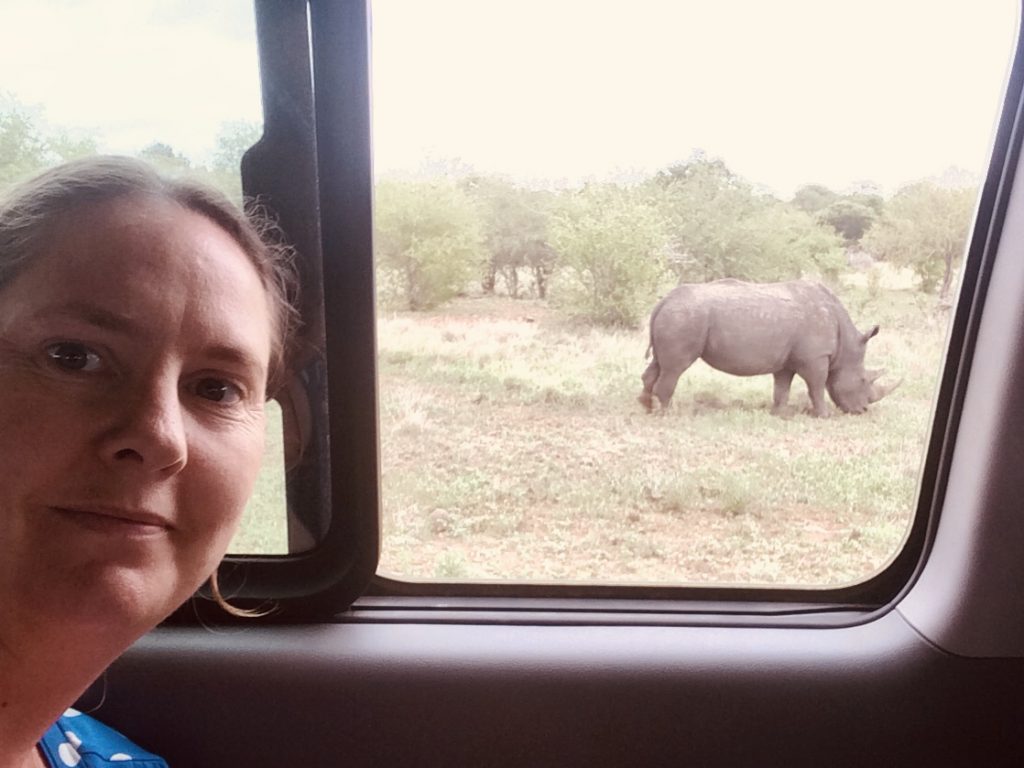 Dr Pearson is one of our longstanding tutors and has been teaching students for us for over 15 years. She teaches on a number of courses and over the years she has consistently received fantastic feedback from students. This year she won an award for her Outstanding Contribution to Teaching at our Annual Teachers Conference.
Dr Pearson is one of our longstanding tutors and has been teaching students for us for over 15 years. She teaches on a number of courses and over the years she has consistently received fantastic feedback from students. This year she won an award for her Outstanding Contribution to Teaching at our Annual Teachers Conference.
How long have you been teaching and what inspired you start teaching originally? I started teaching soon after joining The Fulham Medical Centre in 2004 and have increased my teaching commitment over the years. I spent hours at medical school hanging around being ignored and the one attachment where I felt included was my GP attachment. My GP in year 5 inspired me so much as he had a positive attitude to his job, his patients loved him and he was making a real difference. I wanted to do the same and make the students see general practice as an amazing and privileged job, which is so much more interesting than hospital work as we are almost the last generalists in the NHS.
Tell us about the practice you work in and your role in the practice. I am a partner in my practice and it really helps having a supportive team. I am the most enthusiastic but they all help and any staff joining our team know it’s a vital part of our work, so will be part of the their day to day practice too.
Since you have been teaching for us you have maintained a consistently high standard of feedback – what tips do you have for teaching? My biggest tip for anyone considering teaching is to think of the benefits for yourself, for surgery, your patients and your students. Everyone benefits from Undergraduate teaching. Imperial students are very intelligent and ask really probing questions, so keep me on my toes. When asked a question I don’t know the answer to I ask them to research the answer and let me know! I have a catch-up during my surgery so can run a little slower which the patients appreciate. They love having their problems discussed between us all so they understand the plan we come up with. You must have the support of your front desk to warn patients that you have students, so it saves you time explaining who is with you and why.
How do you balance teaching on top of clinical pressures faced in primary care? The catch-up slot I have helps, but I pre-book my clinic with long term patients for the first half and then quicker ‘on the day appointments’ for the latter part. This means I am running on time for the pre-booked patients and the emergencies are generally happier to wait if I am running late and give often quite simple problems with focused histories. A good balance, I feel. The students are so clever and enthusiastic; keen to help with audits, chronic disease management etc. that it helps the practice too.
Tell us about a moment that particularly stands out as a highlight from your time teaching Imperial Undergraduate Medical Students.
The two most memorable moments of teaching students are very different situations. The first was doing a home visit with a year 5 student, arriving at an elderly ladies flat to find her having a cardiac arrest. It’s a rare occurrence (thankfully!) for us GPs, so I felt very stressed and worried having to quickly flick into emergency mode. My year 5 student had never experienced anything like it, but was great at dialling 999, speaking to the operator and asking for the ambulance, then assisting me with CPR. I was so thankful to have her with me. It made me realise how important our CPR training was and how grateful I was to have someone so competent with me. The second case involved one of my war veteran patients. The practice is in the Sir Oswald Stoll Foundation and we care for lots on veterans. One of our 90+ year old gentlemen had been on the beaches in northern France during the D-Day landings and so had the student’s great grandfather. Sadly his great grandfather had died in France and the student sat and chatted to the patient for a long time about his experience. He then described how enormously privileged he felt having met a man who lived through what his great grandfather had been through and it helped him realise what a sacrifice he had given. It was a very emotional experience for both patient and student, and for me too. The student still emails me now about his progress up through the ranks to be a consultant and mentions how this meeting has been such an important experience in his life.
When you’re not teaching students or working in the practice, how do you like to spend your free time?
I work full time so I don’t have a lot of spare time, but I love travelling. I have three kids (12, 10 and 7 years old) and we go to South Africa at least once a year on safari, or to go on a new adventure to Zimbabwe, to see Victoria Falls, or Mozambique to relax on their glorious beaches. It’s always such an exciting trip and so different from our lives in London which is why we all enjoy it so much. 